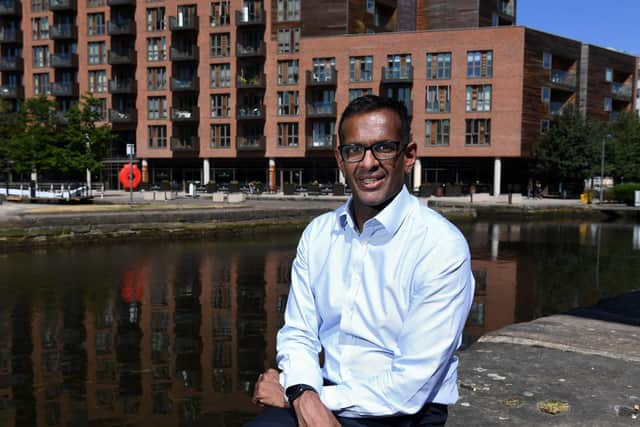UK in a Changing Europe academic Anand Menon returns to his home city of Wakefield to examine the 'levelling up' agenda
Professor Anand Menon, a director of the UK in a Changing Europe initiative, said poor transport links were holding back the city where he grew up by stopping locals from getting to where work is.
The Professor of European Politics and Foreign Affairs at King's College London spoke to residents stranded by poor transport links as well as political and business leaders for an investigation which aired this week on BBC Radio 4.
Advertisement
Hide AdAdvertisement
Hide Ad

And he said the city, which returned a Conservative MP in the 2019 General Election for the first time in decades, "confronts a lot of the problems that similar places face – a low skills base, private sector investment in low-skilled, low pay industries".
But he added: "There are also, as in every place, issues specific to that region. In the Wakefield district, perhaps the key one is transport. While Westgate’s place on the Leeds-London mainline provides significant opportunities, local transport is another issue entirely.
"The Wakefield district – the city and the nine towns, is a sprawling area, with often poor public transport links. This, as I found out, is not just a problem when it comes to whether people can get to town to do their shopping or go out of an evening. It also has a material impact on people’s ability to get to where the work is.
"And all this points to one more lesson. The people who really know an area are the people who live and work in that area. Central government might have come up with the phrase ‘levelling up,’ but if they’re serious about achieving it, they should think about resourcing and trusting local government to help deliver."
Advertisement
Hide AdAdvertisement
Hide AdProf Menon said it was well established that "where you are born still exerts a huge impact on your prospects", with productivity in the worst performing parts of the country significantly lower than in the best performing parts.
And he added: "The traditional Treasury funding model meant that it was easier – and more profitable - to invest in places that were already doing well than in places struggling to catch up."
Meanwhile the University of Cambridge's Bennett Institute for Public Policy says public services, which have seen swingeing cuts in the last decade, should feature more in any discussions about 'levelling up'.
In a blog post Tom Kelsey, Research Assistant, wrote that Ministers were missing an "important point" if they thought economic policies alone would solve the problems of left-behind towns.
Advertisement
Hide AdAdvertisement
Hide AdHe said: "For decades, governments of all stripes have developed policies which aim at tackling geographical inequalities. In the main, these initiatives have had little significant impact.
"While this uninspiring track record should not dampen the current government’s ambitions, it does suggest the need for caution and remind us that the project to level up Britain on which this government has embarked is very unlikely to achieve much within a single electoral cycle.
"In practice, the government would do well between now and the next national election to establish a sense of momentum for this ambitious agenda, and signal that it is serious about addressing some of the most ingrained challenges facing different kinds of left behind community.
"Such an endeavour is much less likely to succeed, if it does not take seriously the integral role of public services."
Levelling Up Wakefield is still available on the BBC Sounds app.